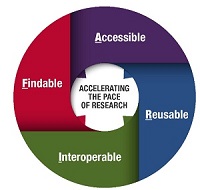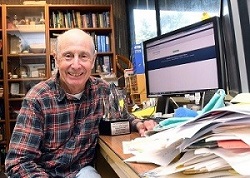Science Leadership

SRP Health Specialist Sara Amolegbe, M.S.P.H., hosted the SRP Risk Communication Stategies to Reduce Exposures and Improve Health Risk E-Learning Webinar Series. NIEHS grantees, partners, and colleagues shared how they have engaged with local groups and communicated potential health risks to reduce exposures and improve health. There were hundreds of participants at each session and online archives are now available for viewing.
SRP Director, William Suk, Ph.D., M.P.H., participated in the 2021 Focus Meeting of the Pacific Basin Consortium (PBC) for Environment and Health on September 16. Suk played a special role in the development of the PBC, helping to transform the organization's mission over time from focusing primarily on remediation to include greater consideration of health effects.
SRP Health Specialist Brittany Trottier, M.P.H., served as a moderator for a session at the PBC meeting and is working with session presenters on a paper about evidence from human population studies regarding the influence of environmental exposures on infectious disease.
In November, SRP Health Scientist Administrator, Heather Henry, Ph.D., presented on SRP climate change activities at a Federal Remediation Technologies Roundtable (FRTR) meeting and gave a talk to the National Nanotechnology Water Initiative Working group about relevant projects funded by SRP.
Henry was nominated as NIEHS representative for the Office of Science and Technology Policy, Interagency Body on research related to per- and polyfluoroalkyl substances to coordinate federal activities of 19 agencies related to PFAS research and development.

SRP Health Scientist Administrator Michelle Heacock, Ph.D., published details of SRP facilitated collaborative projects to enhance data integration, interoperability, and reuse in a white paper (2MB) . The paper provides details about each use case, including their innovative approaches to combining disparate datasets and creating user-friendly tools, the challenges teams experienced, and their recommendations to inform best practices for moving forward.
SRP Health Scientist Administrator Danielle Carlin, Ph.D., is serving as editor for two special journal issues in the International Journal of Environmental Research and Public Health. Submissions for the first special issue, focused on Combined Environmental Exposures/Chemical Mixtures , are due December 31. Submissions for the special issue on Arsenic in Drinking Water and Human Health are due September 30, 2022.
Heacock and Carlin were recognized with 2021 NIH Director's Awards for their outstanding contribution, coordination, and implementation of the NIH Rapid Acceleration of Diagnosis for Underserved Populations (RADx-Up) Initiative to better understand and address health disparities associated with COVID-19.

Research led by University of California,Davis SRP Center Director Bruce Hammock, Ph.D., revealed insight into an important molecular pathway as a potential therapeutic target for a variety of human diseases and pain. Read more in the latest Public Health Impact Story .
Juan Parras, executive director and founder of the Texas Environmental Justice Advocacy Services (t.e.j.a.s.) and community partner of the NIEHS Superfund Research Program centers at Texas A&M University and the Baylor College of Medicine , was recently featured in a NIEHS Grantee Highlight . The article highlighted Parras' work to achieve equity, justice, and resilience for marginalized communities.
The 13th Annual Environmental Health Summit hosted by the Research Triangle Environmental Health Collaborative focused on Disaster Research Response and Public Health Emergencies: Creating an Environment for Resilience in North Carolina. Duke SRP Center researcher Lee Ferguson, Ph.D., and Community Engagement Core (CEC) lead Elizabeth Shapiro-Garza, Ph.D., University of North Carolina SRP Center CEC coordinator Andrew George, Ph.D., and North Carolina State University SRP Center co-investigator Jaime DeWitt, Ph.D., presented.
to Top



